- Home
- David Estes
Water & Storm Country Page 2
Water & Storm Country Read online
Page 2
A boisterous cheer rises up from the ship, and I exhale, forcing out a breath before sucking another one in. The Soakers are here!
Instinctively, my gaze draws away from the ship, following the coastline, easily picking out the other white triangles cutting into the base of the scarlet horizon. More ships—at least a dozen. The entire Soaker fleet.
I’ve got to warn the camp.
I take off, pushing my legs to fly, fly, fly, muttering encouragement under my breath. Before I reach the camp, however, a cry goes up from one of the lookouts, Hazard, a huge man with the blackest skin I’ve ever seen, even blacker than a cloudy, starless night. He yells once, a warning, and soon the camp is full of noise. Commands to rush to arms, to secure the children, to ready the horses, are spouted from the mouth of the war leader, who I can just make out between the tents.
His name is Gard, and if Hazard is huge, then he’s a giant, as tall and wide as the tents. He’s already on his horse, Thunder, which is the largest in the stables, the only one strong enough to bear the war leader’s weight. Gard and Thunder turn away as one to the south, where the other horses are tied.
I dart between the first two tents I come to, slip inside the camp, and narrowly avoid getting trampled by a dozen men and women warriors charging to follow Gard. The Riders. Trained from birth to be warriors, to defend my people from the Soakers, they ride the Escariot, the black horses that have served my people in peace and war for every generation since the Great Rock landed on earth.
Trained like me, by fire and the sword.
“Sadie!” I hear someone yell.
I turn to see my father beckoning to me, his face neutral but serious. Hesitating, my eyes flick to where the warriors are disappearing behind the tents, soon to emerge as Riders, their steeds snorting and stomping in preparation for war. All I want is to watch them go, to see my mother flash past on Shadow, her face full of the stoic confidence I’ve seen on the rare occasions she’s been called to arms.
Unbidden, my legs carry me toward my father, who graces me with a grim smile, his dark skin vibrant under the morning sunlight. His thin arms and legs look even thinner after seeing Hazard and Gard, not unlike the spindly, dark branches of the trees on the storm plains.
“Come inside,” he says.
“I want to watch,” I admit.
“I know,” he says. “Come inside.”
Of course he knows. He knows everything. But I follow him into our tent anyway.
Even when my father seals the flaps at the entrance, the thin-skinned walls do little to block out the rally cries of the Riders as they organize themselves.
When my father, the Man of Wisdom, turns to look at me, I say, “I’m almost sixteen, Father.”
“You’re not yet,” he says patiently, motioning for me to sit.
I ignore the offer. “I need to see this,” I say.
Father sighs, sits cross-legged, his bony knees protruding from the skirts of his thin white robe. “You do not need to see this.” Who am I to argue with the wisest man in the village?
“I’m not your little girl anymore,” I say, pleading now. I kneel in front of him, my hands clasped. “Just let me watch.”
He grimaces, as if in pain, and I wonder how I came from him. My mother makes sense. She’s strong, like me, like Gard, like the other Riders. But my father is so…weak. Not just physically either. I know he’s wise and all that, but I swear he’s scared of his own shadow sometimes.
“Please,” I say again.
He shakes his head. “It’s not your time,” he says.
“When will be my time?” I say, slumping back on my heels.
“Soon enough.”
Not soon enough for me. It’s not like I’m asking to fight, although Mother Earth knows I want to do that too. I want to see what the Riders do, for real, not some training exercise. I want to see my mother fight, to kill, to knock back the Soakers to their Earth-forsaken ships.
Many years have the Soakers threatened my people, for no other reason than they can. Their leader is hungry to conquer, to make slaves out of us, like he has with other peoples before us. Like snakes, their fleet of twelve ships patrols the waters just off the coast of storm country, attacking us from time to time, seemingly at the whims of the Soaker Admiral. We fight for our land and our lives.
We could leave, seek more peaceful lands free of the bloodthirsty Soakers, but my people can be a stubborn people, especially when it comes to our home. It’s been our home since the time of the Great Rock, back when we crawled from our hiding places like worms, finding a changed world. But for me, many generations later, it’s the only world I know. It’s like the lightning and thunder of the storms that so often rage across the plains have become a part of us, strengthening us. The storms call to us. We must stay to hear them.
We want but a small portion of storm country to live off of, but the Soakers want it all, never content with simply controlling the great waters and lands to the north and south of us. So we fight because we must.
I’ve got nothing else to say to the great Man of Wisdom sitting before me, so I don’t say anything, keep my head down, study the dirt beneath my fingernails.
The cries outside the tent die down, dwindling to a whisper as the clop of the horses’ hooves melt into the distance. The world goes silent, and all I can hear is my father’s breathing. My heart beats in my head. Weird.
I look up and his eyes are closed, his hands out, his forearms resting on his knees. Meditating. Like I’ve seen him do a million times before, his lips murmuring silent prayers. In other words, doing nothing. Nothing to help anyway. Meditating won’t stop the Soakers from killing the Riders, from barging into our camp and slaughtering us all like the frightened weaklings that we are, hiding in our tents.
Slowly, slowly, slowly, I rise and move toward the tent flaps, careful not to scuff my boots on the floor.
I creep past my father, and he’s behind me and my hand’s on the flap, and I’m about to open it, and then—
—his hand flashes out and grabs my ankle, his grip much—much—firmer than I expected, holding me in place, hurting me a little.
“Nice try,” he says, and I almost smile.
When I start to backtrack he releases me. Dramatically, I throw myself to the ground and curl up on a blanket, sighing heavily.
“There’s nothing to watch anyway,” he says in The Voice. Not his normal, everyday speaking voice, but the one that sounds deeper and more solid, like it comes from a place low within his gut, almost like it’s spoken by someone else who lives inside of him. A man greater than himself, full of power, barrel-chested and well-muscled—like Gard, a warrior.
The Voice.
When people hear The Voice, they listen.
Even I do. Well, usually. Because The Voice is never wrong.
I set my elbow on the ground and prop my head on the heel of my hand. “Why not?” I ask, suddenly interested in everything my father has to say—because he’s not my father anymore. He’s the Man of Wisdom.
Maybe the meditation wasn’t him doing nothing after all.
His cheeks bulge, as if the words are right there, trying to force their way out. But when he blows out, it’s just air, nothing more. Then he says, “Listen.”
I cock my head, train my ear in the air, hear only the silence of a camp in hiding.
Silence.
Silence.
And then—
—the chatter of horses’ hooves across the plains, getting louder, approaching a rumble, then becoming the distant growl of thunder.
“Now you can go,” Father says in his normal voice, but I’m already on my feet, bursting from the tent opening, running for the edge of the camp while other Stormers are emerging from hiding.
I charge out of the camp and onto the plains, my footsteps drowned out by the grumble of the horses galloping toward me. Gard’s in the front, leading, and he flies past me like I’m not even there. Another few Riders pass in similar fashion before I
see her.
My mother, astride Shadow, her skin and robe so dark she almost looks like she’s a part of her horse, a strange human-animal creature, fast and dangerous and ready.
She stops in front of me, perfectly balanced, her sword in her left hand.
“What happened?” I say.
She motions with her sword behind her, where, with the sun shimmering across the water, the white ships are sailing off into the distance, barely visible now.
“They’re gone,” I murmur.
Chapter Three
Huck
Still screaming his head off, the bilge rat’s sword flies past my head, whistling in my ear as I duck out of the way.
A cheer rises up from the heavy crowd, who suddenly feel like they’re closing in, surrounding us, preventing any chance of escape. I blink hard twice, trying to get the sweat out of my eyes and the noise out of my head. My stomach clenches when I see my father watching quietly as the brown boy stumbles, regains his footing, and then turns to face me again.
I don’t know this boy—
Don’t want to fight this boy—
But I can’t let my father down again.
I squeeze my stomach muscles tight, bite away my fears, and attack, swinging my real sword the way I always practiced with my wooden one. The boy’s eyes go wide and he shrinks back, narrowly deflecting the first of my blows with his blunt blade.
Using this sword is nothing like a wooden one. It’s weighted differently and feels unbalanced in my hand, each slash becoming more awkward than the last. The bilge seems to realize it and easily dodges my next attack, kicking me in the stomach with a dirty bare foot.
I feel the wind go out of my lungs and I gasp, clutching at my gut. Like before, the boy’s face goes from fear to anger in an instant, and he kicks me again, this time in the rear and I go flying, crashing into an empty barrel and sprawling headlong on the deck.
My face is burning, so hot—red and burning. Not from exertion or anger—humiliation. I’ve literally just had my backside kicked by a bilge rat, a scrawny one no less.
But I’m not done yet.
Because my father is watching.
And there’s blood in the water—my mother’s blood. Teeth snapping. I can’t fail him.
Not again.
I push to my feet, only to sense a brown form charging from the side, slashing with his sword. I’m ready this time.
I duck, pushing my fist hard into his stomach. He doubles over and I knee him in the chin, launching him back, his sword flipping end over end as it leaves his hand. Leaping forward, I try to stomp on him, but he rolls away, grabbing his sword. He stands to face me again.
I mutter a curse.
We dance in a circle, staring at each other. There’s a fire in his eyes that wasn’t there when he was first pushed into me. Anger? Violence? No and no, I realize. Desperation. He’s fighting for his life, and I’m fighting for what? Pride? My manhood? My father? Even I don’t know anymore, only that I must continue on, finish what I started.
I slash and he blocks and I slash again, narrowly missing and trimming a shred of cloth from his already tattered sleeve.
My head spins and suddenly there’s a rush of air all around me and I feel my blood pumping and my heart pounding and sweat pouring out of me like rain, and I could’ve killed him—that last swing could’ve killed him and I didn’t even take anything off of it and if it had connected he’d be dead right now and I’d have done it.
I’d have killed him.
I don’t even know this boy and he hasn’t done anything to me except fight for his life and I almost killed him.
I realize I’m breathing heavy and on the verge of tears and my sword is lowered and the bilge rat’s staring at me, probably wondering whether I’ve caught the Scurve because I’m sweating, sweating so damn much that it’s pouring off my brow and into my eyes, blurring my vision.
I stare back at him through sweat—or are they tears?—and strands of dirty-blond hair that have come loose from my ponytail, wondering whether we can just shake hands so he can go back to his scrubbing and I can go back to becoming a man.
Sensing my weakness, he attacks with a fury. It’s all I can do to raise my sword to block his attack, the metal on metal contact ringing out, rising above the cheers of the men around me, who have come to life again. He pushes me back and I stumble. When he pushes again, I’m off balance and my legs get tangled up and I trip, dropping my sword as I try to break my fall with my hands, skidding backwards on my rear, coming to a stop.
I look up, panting.
My father stands over me, his lips a thin line beneath his beard.
But all I can see is the motion of his head. Shaking, shaking, back and forth, wishing I wasn’t his son and that I hadn’t failed him yet again.
And then the tip of the bilge rat’s rusty old sword is at my throat and I can’t breathe and I’m looking up at him and I’m scared of him doing it, but I’m even more scared that he won’t and I’ll have to face my father’s head-shaking and disappointment.
The boy’s face is hard, and for a moment I think he’ll do it, that he’ll kill me, but then he sighs and throws down his sword, letting it clatter to the deck with a dull clang. He stalks off and I close my eyes.
There are murmurs from the crowd, whispered words I can’t hear, and plenty of words that I wish I couldn’t hear.
“The admiral’s son…bah!”
“Beaten by a bilge rat, what an embarrassment!”
“He’d be better off swimming with the sharp-tooths if you ask me.”
Each comment is like a slash to the heart, cutting off another piece of me, ripping me open. Hot tears well up beneath my eyelids, but I won’t open them, not for anyone or anything. Won’t let the tears out where he can see them.
“What a joke,” I hear Hobbs mutter before he stomps away. There’s more scuffling feet and I know the crowd is dispersing, going back to their morning work.
“Huck,” a gentle voice says. A kind voice.
“Go away,” I say.
“Open your eyes,” Cain says, more firmly this time.
“No. Leave me alone.”
“Your father’s gone,” he says. “It’s just you and me.”
Great. Even worse. My father is so ashamed of me he wanted to get as far away as possible. Me, a man? Ha! I’m not even a boy, not even better than a bilge rat.
I open my eyes, squint as a ray of sunlight shoots between the billowing sails rising above me. Feel the warmth of a tear creeping down my cheek, tickling my skin.
Men don’t cry.
I wipe it away with the back of my hand.
Cain looks at me with eyes bluer than the ocean. “I saw what happened,” he says.
“Yeah, everyone did,” I mutter. “I got my ass kicked.”
“No,” he says, shaking his head. “You could’ve won. You were the better swordsman, but when you almost cut him, you freaked. You practically let him win after that.”
“I almost killed him,” I whisper, as if saying it any louder might take away the almost part, leaving the brown boy lying bloody on the deck, my sword through his gut.
“True,” Cain says. “But you didn’t. You chose defeat over ending a life. A brave choice.”
It doesn’t feel very brave. Feels awful. “Father will never make me a man now,” I say.
Cain laughs and I frown. “He doesn’t have much of a choice,” he says. “Plus, he’ll be itching to get you off his ship as soon as possible now.”
I glare at him. “Thanks for the reminder.”
I see movement over his shoulder, on the shore, and I crane my neck to look around him. “What is it?” he asks, turning to follow my gaze.
Dozens of dark Riders spill onto the beach, their black horses stamping and bucking, their swords gleaming in the morning light. Watching us. Waiting. Almost like they’re hoping we’ll come ashore and fight them.
~~~
Because I’m the admiral’s son, turning fou
rteen and becoming a man means leaving The Merman’s Daughter, the ship I’ve grown up on, the ship I love, from its flowing white sails to its polished decks to the songs of the sailors in the morning, bellowed on the wind as they work. Songs of glory and victory and bravery.
Songs about people who aren’t me.
The men are singing now, and their song is for me, but I clamp my hands over my ears and try to block it out. I haven’t seen my father all day, which is fine by me. Seeing him will bring me nothing but pain.
My entire cabin rocks back and forth, as the waves flow beneath the ship. I welcome the gentle, calming motion, a source of normalcy in a place that’s feeling more and more abnormal by the day.
Maybe leaving is a good thing.
Maybe all I need is a bit of change to become a man.
Maybe not.
Blood in the water. Ripping, ripping, crushing my life away.
My father’s face, paler than the white sand beaches of storm country; his blue eyes, wet at first, shocked, but then later dry and red and full of spite. Anger directed at me and my failures.
I slam my fist against my bed pad, feeling pain lance down my fingers when I hit the wood through the stuffing. But the physical pain feels better than what I’m feeling inside. I hit the bed again and again, and I realize the tears are flowing now, which only makes me angrier, because
(men don’t cry.)
Do they?
Do they?
“Bring us the boy! Bring us the boy!” The chanting begins above deck, and although the word boy is meant to be a temporary label, I feel like it’s being shoved into my chest with a hot iron.
I rub my chest with one hand while wiping away my tears on a blanket with my other—
“Bring us the boy!”
I stand up, smoothing the wrinkles on my new blue uniform—
“Bring us…”
Squeeze my fists at my sides—
“…the BOY!”
—and leave my cabin, taking the stairs one at a time, which I haven’t done since my legs grew long enough to skip a step or two.
On the top step, I pause, take a deep breath, and emerge onto the quarterdeck at the rear of the ship, above the officer cabins.

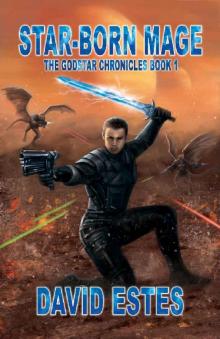 Star-Born Mage
Star-Born Mage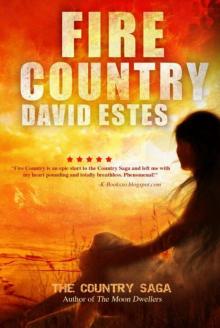 Fire Country
Fire Country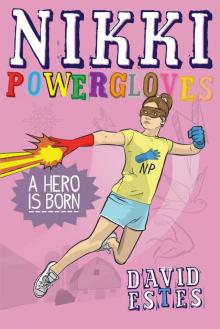 Nikki Powergloves- A Hero is Born
Nikki Powergloves- A Hero is Born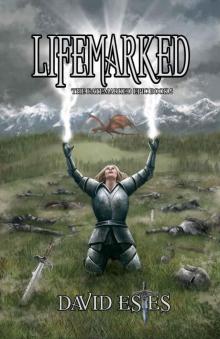 Lifemarked (The Fatemarked Epic Book 5)
Lifemarked (The Fatemarked Epic Book 5) Angel Evolution
Angel Evolution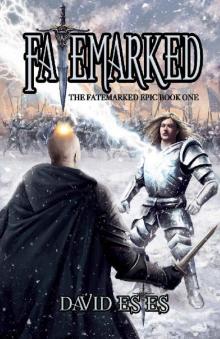 Fatemarked (The Fatemarked Epic Book 1)
Fatemarked (The Fatemarked Epic Book 1)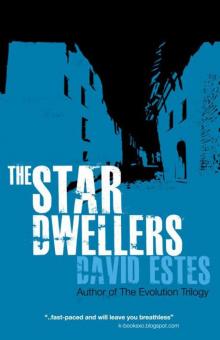 The Star Dwellers
The Star Dwellers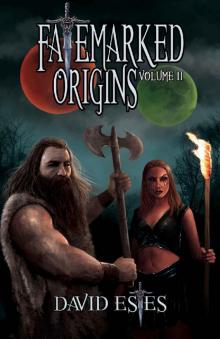 Fatemarked Origins: Volume II (The Fatemarked Epic Book 2)
Fatemarked Origins: Volume II (The Fatemarked Epic Book 2)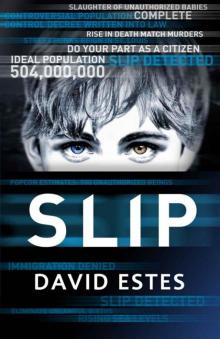 Slip (The Slip Trilogy Book 1)
Slip (The Slip Trilogy Book 1)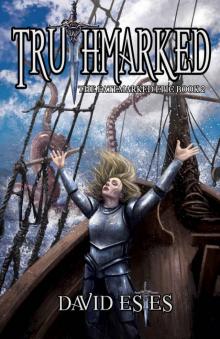 Truthmarked (The Fatemarked Epic Book 2)
Truthmarked (The Fatemarked Epic Book 2)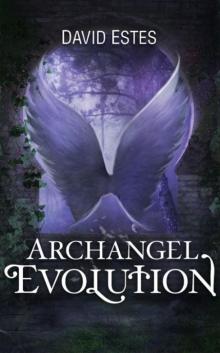 Archangel Evolution
Archangel Evolution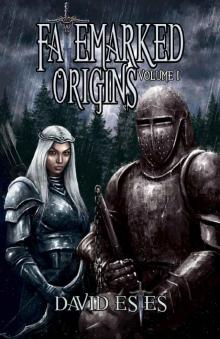 Fatemarked Origins: Volume I (The Fatemarked Epic Book 1)
Fatemarked Origins: Volume I (The Fatemarked Epic Book 1) Flip (The Slip Trilogy Book 3)
Flip (The Slip Trilogy Book 3)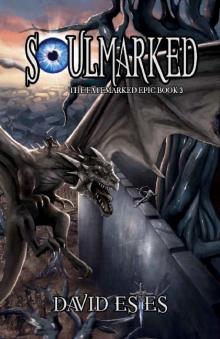 Soulmarked (The Fatemarked Epic Book 3)
Soulmarked (The Fatemarked Epic Book 3)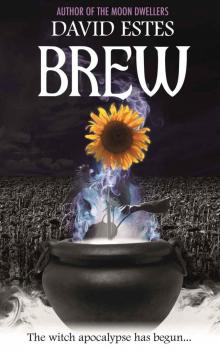 Brew (Salem's Revenge Book 1)
Brew (Salem's Revenge Book 1)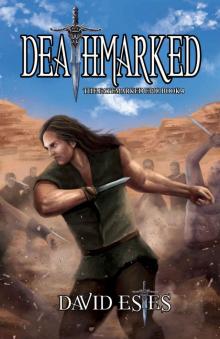 Deathmarked (The Fatemarked Epic Book 4)
Deathmarked (The Fatemarked Epic Book 4)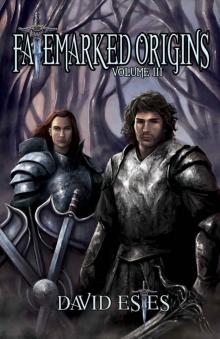 Fatemarked Origins (The Fatemarked Epic Book 4)
Fatemarked Origins (The Fatemarked Epic Book 4)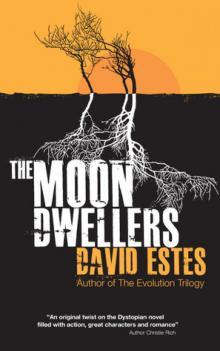 The Moon Dwellers
The Moon Dwellers Boil (Salem's Revenge Book 2)
Boil (Salem's Revenge Book 2)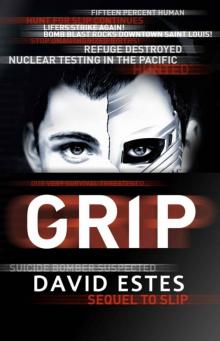 Grip (The Slip Trilogy Book 2)
Grip (The Slip Trilogy Book 2) Salem's Revenge Complete Boxed Set
Salem's Revenge Complete Boxed Set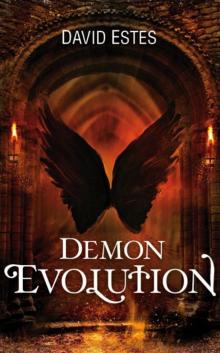 Demon Evolution
Demon Evolution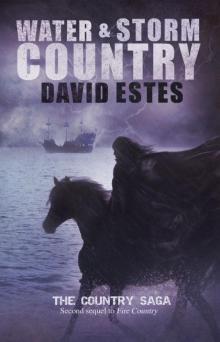 Water & Storm Country
Water & Storm Country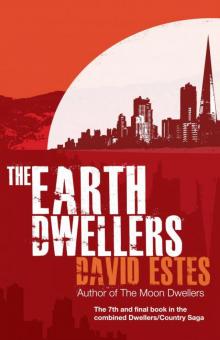 The Earth Dwellers
The Earth Dwellers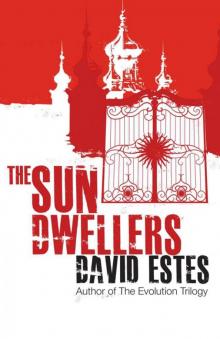 The Sun Dwellers (The Dwellers Saga)
The Sun Dwellers (The Dwellers Saga)